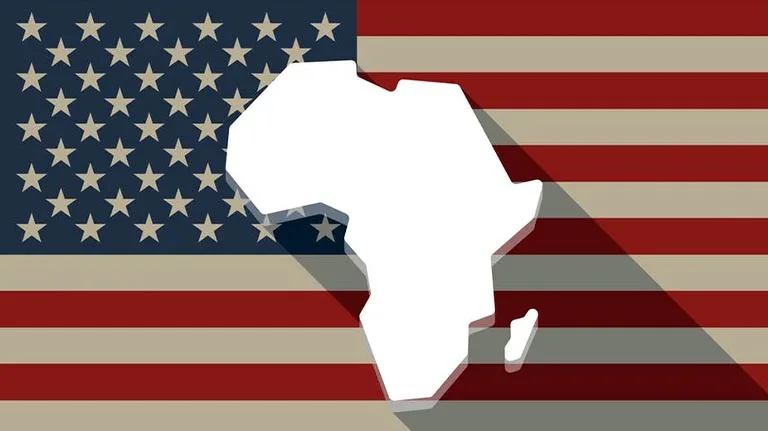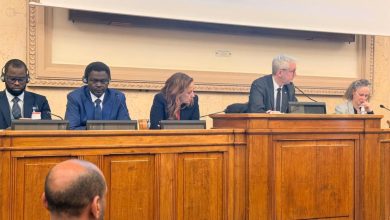Reports
Africa and the United States: A Persisting Trust Deficit

Relations between the United States and sub-Saharan Africa have long been marred by persistent tension and a declining sense of trust. Over time, this credibility gap has widened, diminishing hopes for improvement.
According to The Independent of Uganda, dated Thursday, October 31, 2024, American-African summits will continue to be ineffective if Americans do not treat Africans as equals. Earlier this month, U.S. President Joe Biden postponed a planned trip scheduled for October 13–15, which included stops in Germany and Angola, to focus on preparing for Hurricane Milton’s impact in Florida. He made a brief visit to Germany on October 17–18, while his first Africa visit as president has now been delayed until December, just after the U.S. election and weeks before he is set to leave the White House.
For some African observers, this delay reflects Africa’s low priority in U.S. political strategy.
Discontent is also growing among African countries over U.S. intervention. In May, Ethiopia rejected remarks from the U.S. ambassador regarding its internal affairs as “unwanted advice.” In August, Niger closed its last U.S. military base, declaring its military cooperation agreement with the U.S. “illegal.”
These incidents highlight a broader trend of skepticism and distrust in U.S. intentions among African nations. Despite Washington’s ongoing influence on the continent, a persistent trust deficit continues to challenge American leadership.
This sentiment has been evident since the 2014 U.S.-Africa Leaders Summit, when African nations expected the U.S. to fulfill its investment promises. However, U.S. actions suggest otherwise. According to estimates from the global data and economic intelligence platform Statista, U.S. foreign direct investment in Africa dropped from its 2014 peak to $44.81 billion in 2020 before recovering slightly to $56.29 billion in 2023.
In 2018, the Trump administration launched the ambitious “Prosper Africa” initiative to promote U.S. efforts to stimulate African growth through increased trade and investment. However, the Republican president never set foot in Africa during his four-year term and significantly cut USAID’s budget, reducing rather than expanding foreign aid.
Several analysts argue that the U.S.-led response to climate change, development financing, and great power competition still favors the Global North. The repeated unfulfilled promises have only reinforced a perception that Washington is an inherently unreliable partner, if not hypocritical.
The 2022 U.S.-Africa Leaders Summit further underscored this tension, particularly due to an incident where over 50 African leaders were transported by bus to the summit venue. Kenyan President William Ruto voiced his displeasure, likening the arrangement to schoolchildren being bused around.
The Independent of Uganda quoted former African Union representative to the U.S., Arikana Chihombori, saying, “The U.S.-Africa Summit is a failure if Americans do not treat Africans as equals.” Political analyst from Guinea-Bissau, Seco Cassama, commented that the U.S. consistently disregards African realities, including its traditions and cultures, imposing its interests over those of Africans.
In an analysis by Dr. Olajinka Ajala, a lecturer in politics and international relations at the University of Leeds, terrorist activities and fatalities have steadily increased since 2014, despite U.S. military operations in the region. The American military presence in Niger, for example, has come under scrutiny as attacks have risen significantly since 2018, when the U.S. opened Air Base 201 in Agadez.
Many African nations have long expressed discontent with Washington’s assertive intervention in their internal affairs. One primary obstacle in U.S.-Africa relations is political intervention through economic means. The African Growth and Opportunity Act (AGOA), a unilateral preferential policy, forms the cornerstone of U.S.-Africa economic exchanges. Beneficiary countries must meet non-economic criteria, including democratic reforms, rule of law, and human rights protection. If a country loses eligibility, there is no dispute resolution process, making AGOA a key tool for American intervention in African affairs.
Based on AGOA, the U.S. revoked Ethiopia’s benefits on January 1, 2022, dealing a severe blow to Ethiopia’s thriving textile and apparel industry. In May, U.S. Ambassador to Ethiopia, Ervin Massinga, called for a “transparent transitional justice process” to address reports of alleged arbitrary detentions and sexual violence, a statement Ethiopian authorities condemned as “ill-informed” and “unwanted advice” on internal affairs.
In October 2023, the U.S. announced the sudden removal of Gabon, Niger, Uganda, and the Central African Republic from AGOA as of January 1, 2024, citing “human rights and democracy issues.”
African observers believe the U.S. uses its superpower status and economic influence to intimidate other nations, displaying what they see as a blatant show of power and arrogance offensive to Africa. Historically, the U.S. has viewed Africa as its backyard, displaying racial discrimination against Africans. Consequently, U.S. relations with Africa remain out of touch with the continent’s realities.
Source: Al-Muhaqqiq News



